International Centre for Sustainable Development (IZNE)
Doctoral students of the IZNE

PhD researchers in the IZNE subject field "Health and Social Protection"
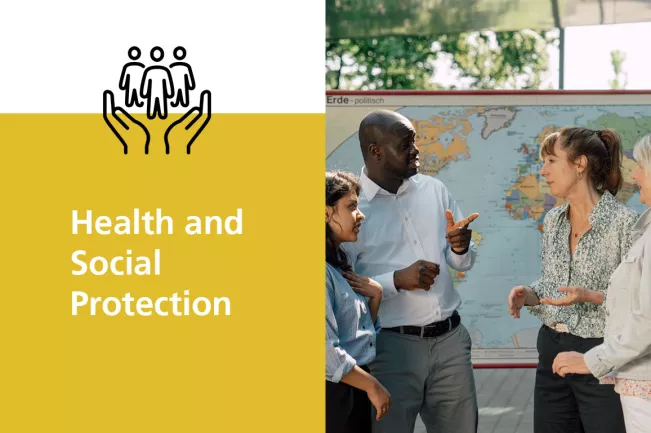
Improving access to health and social protection systems worldwide is an essential element of the 2030 Agenda for sustainable development and an essential requirement for poverty reduction and inclusive growth. Adopting a global perspective, the section Health and Social Protection seeks to contribute to the development of inclusive health and social protection systems.
The PhD researchers are supervised by Prof. Dr. Katja Bender.
Dr. Callistus Agbaam

Factors influencing public support for social protection reforms in developing countries. The case of Ghana
Doctoral degree awarded on 24.05.2022
Supervisor: Prof. Dr. Katja Bender
Partner-University: Ruhr-University Bochum
Over the past two decades, social protection reforms have become a globalised phenomenon and are increasingly recognised by policy makers and donor agencies such as the World Bank and the International Labour Organisation as a key mechanism to reduce poverty and promote economic growth. As a result, many national governments in low- and middle-income countries, particularly in Africa, Asia and Latin America, have recognised the logic behind these reforms and are currently expanding the reach of their public social protection systems.
However, despite the recent proliferation of social protection reforms in developing countries, not much work has been done to explain the key issues affecting the reform processes themselves. Much of the existing academic evidence focuses largely on the design and impact of social protection initiatives. Therefore, based on an empirical survey conducted as part of this project, this study will analyse and explain the factors that determine public support for social protection reforms in a development context. In addition, the study will also analyse how and in what ways public support could contribute to the political sustainability of reforms in developing countries.
Andrew Boogards

Reshaping Rural Economies through CSR: An examination of how international mining companies are influencing the development of indigenous economies
Supervisor: Prof. Dr. Katja Bender
Partner University: Ruhr-University Bochum
E-Mail: andrew.boogaards@rub.de
In an attempt to mitigate public opinion, many mining companies have participated in community-based programmes to offset the negative externalities created by mining activities in the Global South. These social programmes and community-based initiatives are often referred to as corporate social responsibility (CSR). This can refer to the social roles traditionally performed by the private sector, such as occupational safety standards and skills training for workers, or it can refer to programmes traditionally promoted by the public sector, such as health, education and local infrastructure projects. Of course, there is a time limit to this form of corporate-implemented social welfare. After the closure of mining operations, CSR programmes also expire, leaving a gap if the government and/or the third the non-profit sector are not able to replace these projects.
This paper examines the positive and negative effects of CSR programmes and the ability to sustain and build on benefits from previous CSR programmes. It also looks at how mining companies help communities transition their social, political and economic institutions after a mine closes. Therefore, the author works with governmental, non-governmental, private and grassroots organisations in a number of different communities within a given region to analyse changes in the quality of community-based services. This is followed by an analysis of local economies to determine whether corporate social policies have helped to develop community-led economic drivers and the potential for long-term growth.
Ana Maria Perez Arredondo
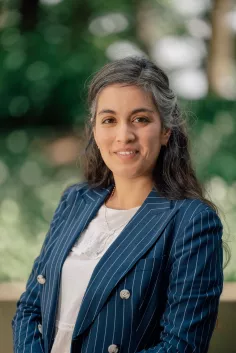
The impact of social capital on agricultural and health risk management. The case of urban farmers in Accra
Supervisor: Prof. Dr. Katja Bender
Partner University: University Bonn
A promising strategy for understanding the factors that influence health insurance take-up is to consider network effects, as social connections have a strong influence on decisions and are usually the only way to protect against shocks. Understanding the way in which common risk pooling arrangements contribute to the formalisation of insurance can only be addressed through a holistic approach, as the insurability of consumption can be determined by different responses to different shocks.
The aim of this work is to identify the influence of social networks on individual decisions regarding risk preferences. Furthermore, in order to be able to improve health risk coping skills, it is necessary to identify the limitations of existing strategies and to analyse their efficiency in terms of economic welfare. The study is divided into three modules. Module 1 will focus on how environmental, animal and human health interactions influence risks, assessing risks at the community and household levels. Module 2 will build on the risk assessment of Module 1 to identify risk mitigation strategies and their implications for household resource allocation. Finally, Module 3 will explore the characteristics of households within a community in terms of risk exposure and participation in formal market insurance and group-based risk pooling to identify the drivers of social linkage formation and the potential influences of networks on risk preferences.
The study site is Greater Accra, which is experiencing rapid urbanisation dynamics, increasing health risks, rising urban poverty and changing food systems associated with demographic and epidemiological transitions. Data are drawn from the Socio-Economic Panel Survey, the Urban Poverty and Health Survey-EDULINK and household-level surveys using aggregate relational data to recover the parameters of a general network formation model. A Pareto model of risk-efficient allocation at the community and household level is used to identify frontiers and efficiency levels of risk reduction strategies. In addition, a series of probit models for each strategy is used to estimate how the probability of adopting particular risk reduction strategies is affected by the social networks.
Sanjana Rajasekar
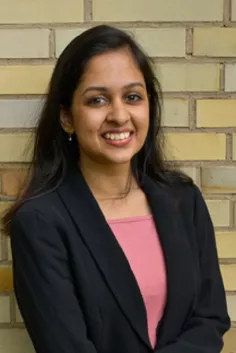
The interaction between institutions and social protection in promoting food resilience amongst farmers in Ahmedabad (India)
Supervisor: Prof. Dr. Katja Bender
Partner University: University Bonn
E-Mail: s.rajasekar@uni-bonn.de
Farmers have faced the brunt of the COVID-19 pandemic and ongoing climate crisis through limited access to markets, and threats to livelihoods and food security. This project aims to understand the role of governance and institutions in mitigating shocks and promoting health and food security among vulnerable, disaster-prone populations. The research will also incorporate a gender-lens to analysing One Health to further understand the linkages between gender, agriculture and health. Questions that will be tackled include: What is the effect of social protection instruments in promoting One Health, and subsequently, food resilience? How could social protection be better designed to achieve its objectives? What is the role of community-led governance in health and food resilience outcomes of a disaster-prone social network? How could social protection and community governance be designed to promote sustainable health outcomes among women specifically? A household-level cross-sectional survey will be the
primary source of data, complemented by a series of focus group discussions and social network analyses.
PhD researchers in the IZNE subject field "Soils and Biomass"
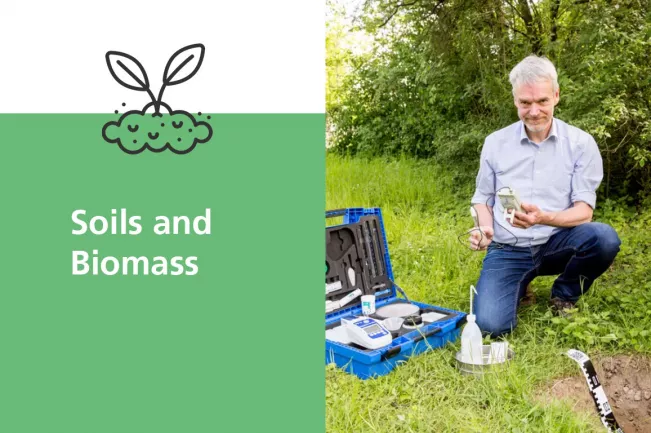
Soils and biomass are inseparably connected with each other via a multitude of material cycles. The loss of fertile soils and thus also of ecologically diverse terrestrial ecosystems worldwide is dramatic. IZNE initiates and coordinates several research projects, which protect soil as a finite resource, applying a holistic approach.
The PhD researchers are supervised by Prof. Dr. Martin Hamer.
Atefeh Movassagh
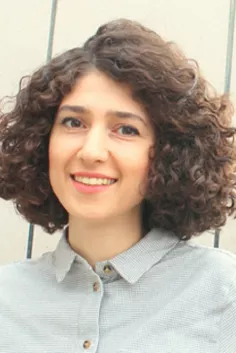
Sustainable urban transformation through climate change mitigation and sustainable management of soil and water
Supervisor: Prof. Dr. Martin Hamer
Partner University: University Bonn
E-Mail: amovassa@uni-bonn.de
Soil is one of the most significant components of terrestrial ecosystem serving a variety of functions and ecosystem services across a wide range of land uses. Soil is critical for minimizing the consequences of climate change as it is a key carbon sink and plays a significant part in the carbon sequestration process. Climate change and urbanization affect human and environmental health not just by increasing the greenhouse gas concentration in the atmosphere but also by modifying the key soil properties and processes, reducing its ability to absorb these gases. It is critical to preserve soil health in the face of climate change because a healthy soil can maintain its physical, chemical, and biological functions while also recovering from the effects of climate change.
The aim of this study is to assess how different types of urban land use and management methods affect the soil's diverse features and how these can assist in reducing the consequences of climate change as cities transform. The research will take place on a local scale in Germany, and will examine the interaction between different types of urban land use and soil properties in the context of mitigating climate change ecosystem services. In this manner, the amount of terrestrial carbon, as well as physiochemical and biological features of soil would be measured throughout time. The expected outcome of the study will be to highlight the significant contribution of land management and soil health in mitigating the effects of climate change in urban areas.
Michael Stotter

Miscanthus substrates as fertiliser: nitrogen and degradation dynamics and influence on microbial biomass
Co-Supervisor: Prof. Dr. Martin Hamer
Partner-University: University Bonn
The German-Dutch project Food Protects aims to reduce regionally occurring excess reactive nitrogen compounds from agriculture into ecosystems and to increase structural diversity in the agricultural landscape. To this end, Michael Stotter is working on the environmental impacts following the use of Miscanthus biomass in livestock farming. He focuses on the environmentally and site-appropriate application of organic fertilisers from Miscanthus additions. The influence on nitrogen and carbon dynamics and the interaction in the soil-plant system are in the foreground.
Dr. Philipp Swoboda
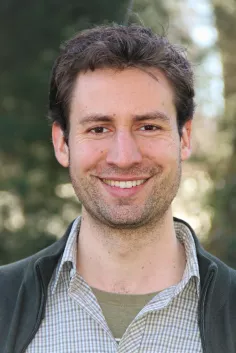
"Turning stones into bread?" - Agricultural application of rock dust in the context of One Health
Doctoral degree awarded on 07.03.2022
Supervisor: Prof. Dr. Martin Hamer
Partner University: University Bonn
Increasing attention is being paid to the use of finely ground rock dust as a cost-effective fertiliser and soil conditioner. Unlike soluble NPK fertilisers, rock-forming silicate minerals contain most of the macro- and micronutrients needed by higher plants for growth and development. The use of rock dust is particularly emphasised in deeply leached Oxisol soil environments, which are common in the Global South, where soluble fertilisers are rapidly leached and often unaffordable for farmers.
Scientific results are still conflicting due to inconsistent weathering rates, but reported benefits include improved crop production, as well as improved pH, CEC, increased resistance to plant pests and diseases, and sequestration of CO2. In addition, mixing rock dust with solid manure reduced NH3 emissions and doubled N recovery from herbage when applied to grassland. Farmers in Germany mix slurry (manure) with rock dust and claim that this has led to a reduction in odour and a simultaneous reduction in NH3 emissions. However, there are no scientific studies on the effects of rock dust mixed with manure, which is one of the main sources of NH3 emissions and thus N losses in agriculture. Therefore, the aim of this study is to (1) review the field of agricultural rock dust application in the context of One Health and (2) analyse the impact of mixing slurry with rock dust on NH3 emissions under controlled conditions. To measure potential reductions in NH3 emissions, slurry samples with or without rock dust addition are placed in sealable plastic boxes connected to a photoacoustic gas monitor. Repeat measurements are taken periodically over a three-day period, as most NH3 emissions occur within the first three days.
PhD researchers in the IZNE subject field "Responsible Economy and Natural Resources"
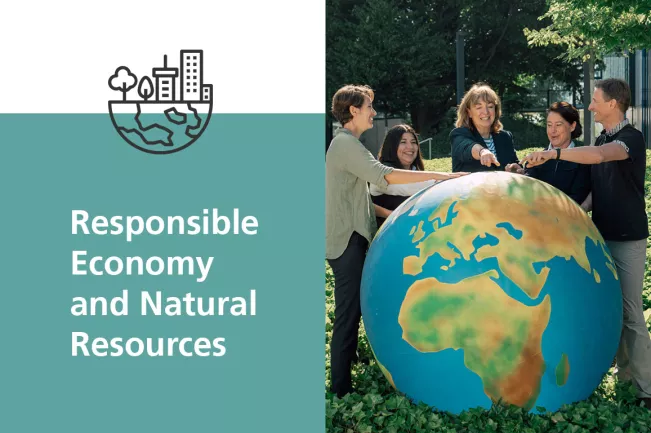
The research group draws on extensive methodological expertise from various disciplines and carries out sustainability-relevant, interdisciplinary and transdisciplinary projects in research, consulting, teaching and transfer. The cooperation of all levels and stakeholders, including local politics, administration and citizens, is an integral part of the holistic approach.
The PhD researchers are supervised by Prof. Dr. Wiltrud Terlau.
Dr. Jessica Francine Felappi

Urban green areas as One Health interventions: Designing parks to promote human and wildlife health (biodiversity)
Doctoral degree awarded on 10.01.2024
Supervisor: Prof. Dr. Wiltrud Terlau
Partner University: University Bonn
Cities around the world have been looking for new alternatives for building and transforming urban areas to provide a healthier and more resilient environment for their residents. The integration of green infrastructure into urban planning has gained momentum as a three-pronged strategy as it benefits people's health and well-being, preserves biodiversity and improves environmental health. Urban parks, if well designed and managed, can serve as recreational areas where people can regain their cognitive abilities and relax, while providing habitat for local flora and fauna.
However, reconciling the demands of human use and biodiversity conservation in the same place is a challenge that has not yet been adequately explored. Therefore, this study aims to identify which features of urban parks affect the outcomes of mental restoration and wildlife support, and the synergies and trade-offs between these two dimensions.
The Brazilian city of São Paulo serves as the study area. This study aims to provide empirical evidence for the design and management of multifunctional urban green spaces that meet human needs and biodiversity conservation.
Silvia Berenice Fischer
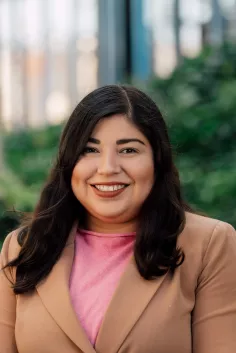
Risk and vulnerability of socioecological systems: the case of the peri-urban agriculture of São Paulo (Brasil)
Supervisor: Prof. Dr. Wiltrud Terlau
Partner University: University Bonn
E-Mail: silvia.fischer@h-brs.de
Cities are highly vulnerable to the impacts of extreme weather events. Specific impacts are believed to increase the vulnerability of urban agricultural systems and exacerbate the factors affecting them, such as increasing demand for food and decreasing yields due to changing rainfall patterns and extreme temperatures, conflicts over scarce resources (land ownership, water, biofuels, etc.) and chronic poverty.
For this reason, evidence-based assessment is essential in any urban centre for effective adaptation action. This includes local risk and vulnerability assessments, information and data to consider current and future risks as well as adaptation and development options. Extreme weather vulnerability assessments are considered an essential first step in developing adaptation strategies.
São Paulo is the largest metropolitan region in South America and has suffered from severe water shortages since 2010, raising concerns about the future of water supply. Freshwater reservoirs reached their lowest level in 2013/2014 due to a lack of rain, accompanied by a heat wave that culminated in the warmest summer in 55 years in 2015.
This study adopts the "Multi-hazard Risk Assessment Framework for the West Sudanian Savanna Zone" in the context of urban and peri-urban agricultural systems. The framework aims to capture the interactions between hydro-climatic stressors, shocks and risks from a socio-ecological perspective while identifying actual coping and adaptation measures at different temporal and spatial scales.
This approach aims to assess the vulnerability of urban and peri-urban agriculture in the city of São Paulo to extreme weather events and current adaptation strategies. By developing a set of indicators to operationalise the risk and vulnerability assessment framework and by identifying the available adaptation strategies to improve resilience and reduce vulnerability to extreme weather events.
Dr. Christine Kawa

The art of nudging: Increasing healthy eating among students in an educational setting
Doctoral degree awarded on 30.11.2023
Member of the appraisal commission: Prof. Dr. Wiltrud Terlau
Partner University: University Maastricht
E-Mail: christine.kawa@h-brs.de
Eating a healthy diet is a challenge for many young adults and most do not meet the World Health Organization (WHO) recommendations for fruit and vegetable consumption. The need to take action to promote healthy eating behaviors has been recognized. As young adults spend many hours a day at school or university, for example, it has been recognized that the educational environment is a suitable place to apply these measures. Many effective measures to promote healthy eating (such as cooking classes or information workshops) rely on the active participation of the individual. However, it is assumed that dietary behavior rarely involves active cognitive processes and is influenced by many factors (such as taste or presentation). These influencing factors also include the environment (the immediate surroundings) in which eating behavior takes place. A promising type of health intervention that takes advantage of these environmental influences and often targets automatic cognitive processes is called nudging. This involves simple changes in a person's immediate environment that aim to emphasize a particular option without excluding or prohibiting other options. The Brazilian city of São Paulo serves as the study area. In the end, this study aims to provide empirical evidence for the design and management of multifunctional urban green spaces that meet human needs and biodiversity conservation. In this way, the choice of a particular option will be made easier for the individual. An example of a nudge towards healthy eating is changing the order in which food is arranged on a buffet by placing healthy food at the beginning and unhealthy food at the end of the buffet. Such incentives for healthy eating have already been successfully applied in educational institutions, but not all of them are easy to implement. One promising and easy-to-implement form of encouragement is suggestions based on works of art. So far, research has not looked at these works of art.
Dr. Johannes Klement
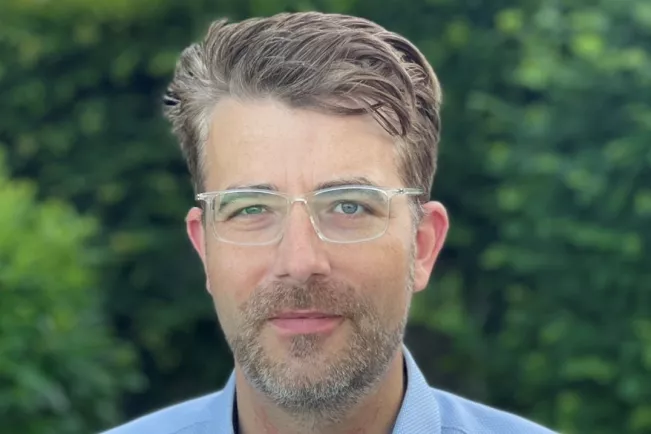
Doctoral degree awarded on 07.07.2023
Co-Supervisor: Prof. Dr. Wiltrud Terlau
Partner University: University Wuppertal
-
Eliana Lins Morandi
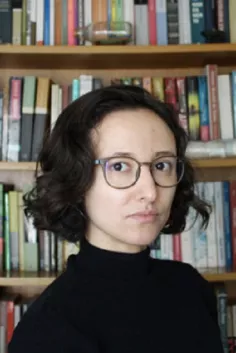
Territorial governance for food sovereignty in São Paulo (Brasil)
Supervisor: Prof. Dr. Wiltrud Terlau
Partner University: University Bonn
E-Mail: elinsmor@uni-bonn.de
The growing urbanization and the increased access to industrialized and ultra-processed food have changed the ways through which food-related issues take place. The nutrition transition entails problems related to the consumption of this type of food in poor and developing countries – issues that coexist with hunger and food insecurity. In Brazil, the Covid-19 pandemic is pushing more people into hunger. Simultaneously, food production techniques adopted in this country are often harmful to people, fauna and to the biomes’ equilibrium as a whole. Long food supply chains impose logistical and environmental problems. The consequences of this scenario are felt by the people in uneven ways. The poor and minority groups are specially affected with less capacity to cope with these conditions. In this context, the concept of food sovereignty is a compreheensive way to approach all those issues since it encompasses social control over food production, distribution and consumption towards the right to culturally appropriate, sustainable and healthy food. Thus, this research aims to answer how is the current governance structure towards food sovereignty in the metropolitan area of São Paulo, the largest Brazilian city? And how can it be strengthened? In order to address these questions, this research will map food deserts and hunger spots in São Paulo and check the correlations with social indicators, spoting the most vulnerable areas to be further qualitatively investigated. The agenda and governance structure towards food sovereignty, relevant actors and tensions will be identified and described through document analysis and interviews at the municipal, state and federal levels. In addition, participant observation and interviews are to be conducted at the very local level in vulnerable neighborhood(s). Finally, this research aims to contribute to the building of a propositive agenda around food sovereignty in the metropolitan area of São Paulo, involving the stakeholders identified and mobilized throughout this research project.
Maria Luisa Espinel Ramos
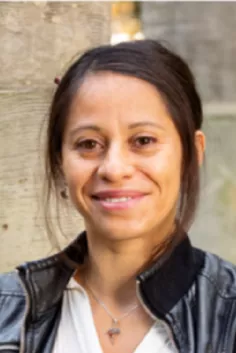
Urban health ecology and biodiversity at the animal-human health nexus: dynamics of zoonoses in urban and peri-urban areas
Member of the appraisal commission: Prof. Dr. Wiltrud Terlau
Partner University: University Bonn
E-Mail: mespinel@uni-bonn.de
The spill-over of infectious diseases from animals to humans is the result of natural evolutionary processes and adaptation mechanisms of pathogens, vectors and hosts to new habitat conditions created by human activities, such as changes in land use, livestock production, miss-use of antimicrobial drugs and introduction of exotic species. In urban habitats, factors such as biodiversity loss and climate change disrupt the ecology of pathogens and trigger mechanisms for pathogen adaptation and potential transmission to humans.
Urban areas encompass many ecological and social elements, where dense animal and human populations with close and frequent interactions coincide. Consequently, exposure to spill-overs depends on the location and frequency of these interactions and on human behaviour, conditioned by socio-economic factors, social norms and community dynamics. These complex dynamics at the environment-animal-human interface and infectious disease processes are not fully understood. Therefore, the prediction and prevention of emerging zoonotic diseases must be addressed in research through the analysis of socio-ecological systems combined with health and environmental aspects in the framework of "One Health".
The post-industrial urban landscape of the Ruhr region (Germany), characterised by a diversity of natural and man-made elements, is an interesting area for the research of these complex dynamics of zoonoses. In high-income countries, zoonoses occur mainly indirectly through insect vectors or the food system. Therefore, Lyme disease involving the interaction of pathogens, vectors (ticks), domestic and wild animal hosts, climatic factors and human social behaviour is analysed. The aim is to identify the main anthropogenic and non-anthropogenic determinant risk factors and the potential foci of zoonotic infections in various urban and peri-urban areas. This information is useful for the elaboration of zoonotic disease prevention schemes and the development of policies and urban planning strategies focused on the protection of the environment and human-animal health.
Angela Turck
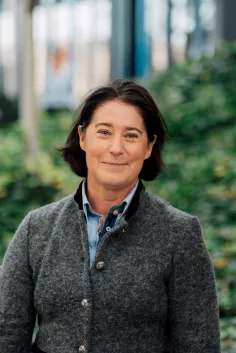
E-Mail: angela.turck@h-brs.de
IZNE internal PhD
Diversity of Insects in Nature-Protected Areas – A Stakeholder Approach
Co-Supervisor: Prof. Dr. Wiltrud Terlau
Partner University: University Bonn
The research work, initiated by the project "Diversity of Insects in Nature-Protected Areas (DINA)", examines the intricate connections between agriculture and nature conservation. Since 2019, significant changes have transpired: an increase in environmental awareness, political priorities shifting towards environmental and climate protection, manifested in the European "Green Deal" and the "Farm to Fork Strategy", among others. Simultaneously, the COVID-19 pandemic has also influenced political decisions. In this dynamic context, the study emphasises the necessity of a stakeholder-centered approach. It analyses tensions and challenges for farmers in nature-protected areas. Furthermore, the research takes an in-depth look at farmers' perspectives in order to comprehend their hesitations and aspirations in nature conservation. A particular focus is placed on the analysis of farmers' economic incentives for biodiversity using a motivation theory. The objective of the project is to comprehensively capture the interactions among key stakeholders and develop solutions for sustainable coexistence through an integrative approach.
PhD researchers in the IZNE subject field "Sustainable Technologies and Resource Usage"
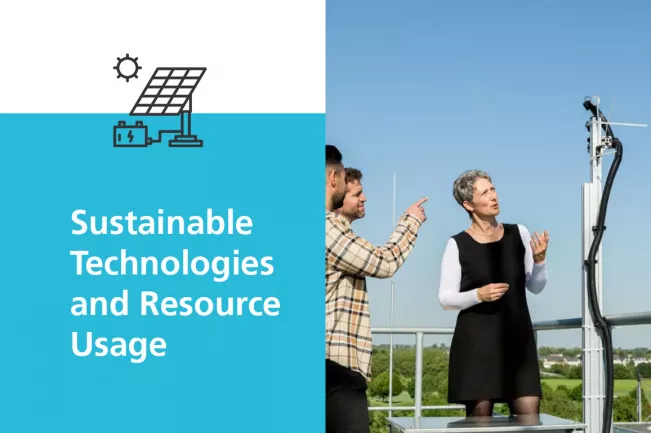
Sustainable technology development seeks technical solutions on technical aspects related to the energy and mobility sectors to improve people's living conditions in line with the UN SDGs without having negative environmental or social consequences. At the same time, it must be ensured that technical solutions also work when the environment and society change.
The PhD researchers are supervised by Prof. Dr. Stefanie Meilinger.
Benjamin Anim

Modelling the Impact of Atmospheric and Near-Surface Aerosols on Solar PV Performance in sub-Saharan Africa
Co-Supervisor: Prof. Dr. Stefanie Meilinger
Partner-University: Kwame Nkrumah University of Science and Technology (KNUST), Ghana
Solar power is one of the renewable energy sources that has been identified as promising for electrical power generation in sub-Saharan Africa. However, the performance and efficiency of solar PV systems in sub-Saharan Africa are greatly influenced by atmospheric and near-surface aerosols. Even though ground-based infrastructure for data collection and monitoring is reliable for studying the impact of aerosols on PV yield performance, this dataset is sparse and limited in the sub-region and often suffers from limitations in spatial coverage, temporal resolution, and data consistency. To overcome these challenges and enhance the precision and reliability of PV performance assessment, PhD student Benjamin Anim proposes leveraging satellite-derived aerosol reanalysis data, solar PV models, and radiative transfer models to study the impact of atmospheric and near-surface aerosols on PV yield performance in the sub-region.
Samer Chaaraoui
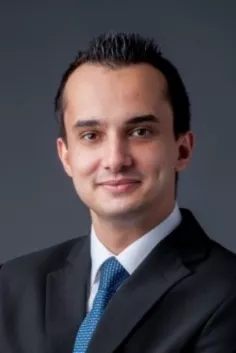
Development of a predictive control model for secondary and mid-term network control in the context of the Ghanaian health sector
Supervisor: Prof. Dr. Stefanie Meilinger
Partner University: Promotionskolleg (PR) NRW
The Ghanaian health sector suffers from an unstable electricity supply, which is often compensated with diesel generators. However, in addition to the ecological and financial burden, this also leads to a health burden for sick people and residents. Renewable energy sources can help to ensure a clean and cost-effective energy supply, but they bear risks in terms of the stability of the power supply. PhD student Samer Chaaraoui is researching model predictive controls for PV-diesel hybrid systems based on load and radiation predictions. Different prediction methods are being investigated, from simple statistical methods to numerical weather prediction models and the implementation of deep neural networks and artificial intelligence.
Dr. David Dreistadt
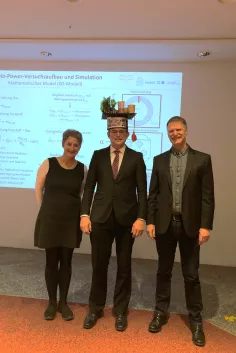
Mathematical-physical modeling and system simulation for the integration of powder metal-based hydrogen storage in power-to-gas systems
Doctoral degree awarded on 06.12.2023
Co-Supervisor: Prof. Dr. Stefanie Meilinger & Prof. Dr. Gerd Steinebach
Partner University: Helmut Schmidt University Hamburg
-
Dr. Ina Neher

Land use-induced influence of atmospheric aerosols on solar energy production - scenario analysis and consequences for West Africa
Doctoral degree awarded on 26.06.2020
Supervisor: Prof. Dr. Stefanie Meilinger
Partner-University: University of Cologne
Energy generation with the help of solar energy offers a possibility to meet the increasing energy demand worldwide and to reduce CO2 emissions at the same time. For the construction of solar energy plants, a precise analysis of potential locations and in particular of the radiation available is necessary. For this reason, it is important to know the effects of the regional and local atmospheric composition on solar radiation in order to be able to realistically predict the energy yield. In her thesis, Ina Neher studied the influence of atmospheric variability on solar energy potential in West Africa, analysing satellite data for the entire region.
„Follow us for research, that makes a difference!”

Do you have any further questions?

Katja Bender
Professor of Economics, esp. Economic & Social Development, Vice Dean for Research, Transfer and Internationalization, Director International Center for Sustainable Development, Deputy President European Association for Development Research and Training Institutes (EADI)
Research fields
Location
Sankt Augustin
Room
F 306
Address
Grantham-Allee 20
53757, Sankt Augustin
Telephone
+49 2241 865 9660
Martin Hamer
Professor for soils and biomass, Director of the International Centre for Sustainable Development (IZNE), Department of Applied Natural Sciences
Research fields
Location
Sankt Augustin
Room
F 311
Address
Grantham-Allee 20
53757, Sankt Augustin
Telephone
+49 2241 865 774
Stefanie Meilinger
Professor for Sustainable Technologies, esp. Energy Efficiency and Renewable Energies, Director of the International Centre for Sustainable Development (IZNE), Department Engineering and Communication (IWK)
Research fields
Location
Sankt Augustin
Room
F 321
Address
Grantham-Allee 20
53757 Sankt Augustin
Telephone
+49 2241 865 718
Wiltrud Terlau
Professor of Economics, Resilient and Sustainable Development, Director of the International Centre for Sustainable Development (IZNE), Department of Economics
Research fields
Location
Rheinbach
Room
B 111
Address
von-Liebig-Straße 20
53359, Rheinbach
Telephone
+49 2241 865 410Location
Sankt Augustin
Room
Raum F 305
Address
Grantham-Allee 20,
53757, Sankt Augustin



